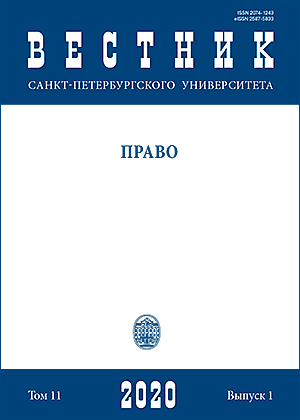Role of the notary in judicial reform
DOI:
https://doi.org/10.21638/spbu14.2020.105Abstract
When the Supreme Court of the Russian Federation declared the goal of the current reform of civil justice to be simplification, it identified a number of means to achieve this goal. Special attention should be paid to the competence of a notary. Can a notary act as a judge? What is the role of a notary in the judicial system? This article examines the role of the notary as one of the means and proposes three measures that need to be adopted. The first is to expand the competence of the notary in special proceedings where there is no conflict between parties. In such cases, the notary takes on the competence of a judge in establishing a legal fact in the absence of a conflict between parties. The second is to draft special legislation concerning the procedure of notarial authentication of judicial proof, a procedure which is currently unavailable. The third is to expand notarial competence in enforcement inscription. This notarial competence is similar to judicial summary proceedings. The article concludes that if these measures are adopted, the expanded role of the notary could contribute significantly to reducing the workload of judges and to achieving the reform goal of simplifying civil justice.
Keywords:
civil justice, notary procedure, judicial summary proceedings, enforcement inscription, reducing the workload of judges, notarial authentication of judicial proof
Downloads
References
Downloads
Published
How to Cite
Issue
Section
License
Articles of "Vestnik of Saint Petersburg University. Law" are open access distributed under the terms of the License Agreement with Saint Petersburg State University, which permits to the authors unrestricted distribution and self-archiving free of charge.






